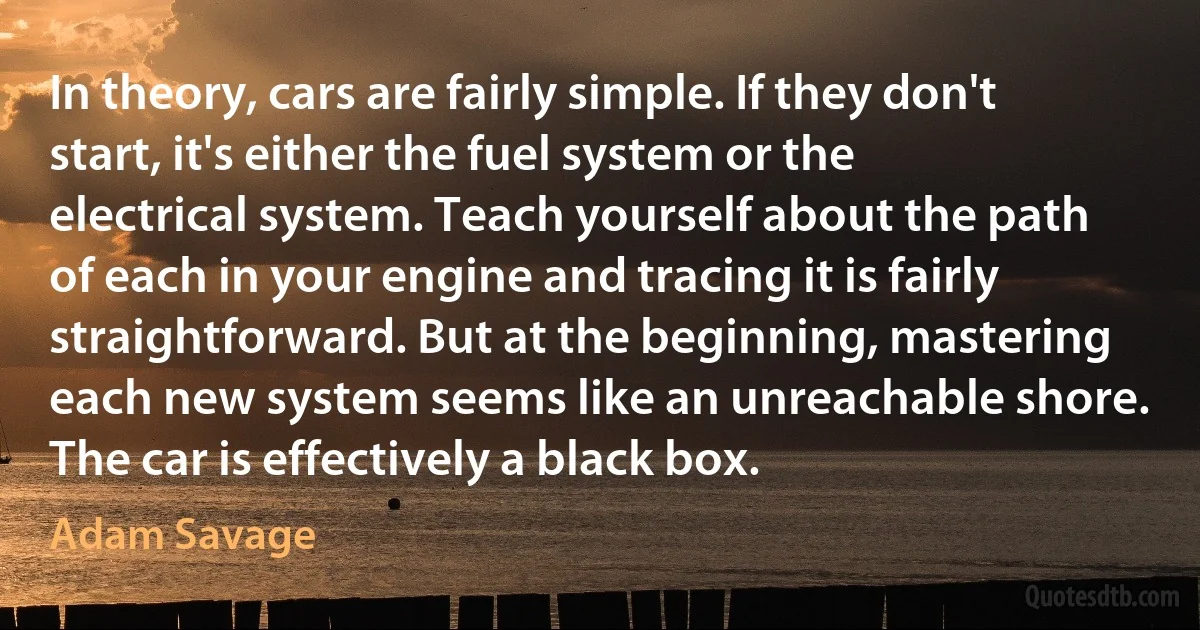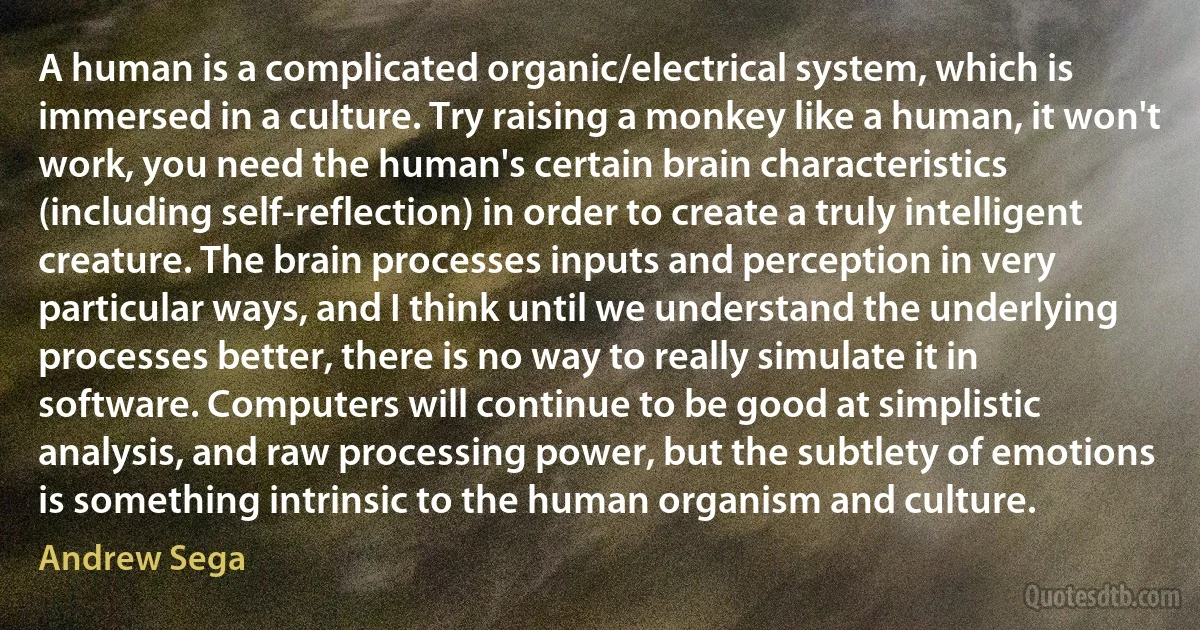Electrical Quotes - page 4
Carbon nanotubes are amazing because they're really good electrical conductors, yet they are only a few atoms in diameter. You can make transistors out of them in the same way you can with silicon. At Berkeley, we made the narrowest device anybody had ever made. It was basically a single molecule.

Paul McEuen
Neuroscientists talk a lot about brain circuits. In fact, the word 'circuit' is probably misleading. We do not know where most circuits begin and end. And unlike an electrical circuit, brain connections are heavily reciprocal and recursive, so that a direction of information flow can be inferred but sometimes not proven.

Thomas R. Insel
Machine-held strings of binary digits can simulate a great many kinds of things, of which numbers are just one kind. For example, they can simulate automobiles on a freeway, chess pieces, electrons in a box, musical notes, Russian words, patterns on a paper, human cells, colors, electrical circuits, and so on. To think of a computer as made up essentially of numbers is simply a carryover from the successful use of mathematical analysis in studying models. Most of this series of lectures has been devoted to applications of computers, and this is not the time to give details about their usefulness. I merely wish to point out certain types of things being done with computers today that could not have been done in 1945. Some of these are technological, some are intellectual.

George Forsythe
'Cyberspace' as a term is sort of over. It's over in the way that, after a certain time, people stopped using the suffix '-electro' to make things cool, because everything was electrical. 'Electro' was all over the early 20th century, and now it's gone. I think 'cyber' is sort of the same way.

William Gibson
Just as a primitive sextant functions on the illusion that the sun and stars rotate around the planet we are standing on, our senses give us the illusion of stability in the universe, and we accept it, because without that acceptance, nothing can be done.
Virginia Vidaura, pacing the seminar room, lost in lecture mode.
But the fact that a sextant will let you navigate accurately across an ocean does not mean that the suns and stars do rotate are us. For all that we have done, as a civilization, as individuals, the universe is not stable, nor is any single thing within it. Stars consume themselves, the universe itself rushes apart, and we ourselves are composed of matter in constant flux. Colonies of cells in temporary alliance, replicating and decaying, and housed within, an incandescent cloud of electrical impulse and precariously stacked carbon code memory. This is reality, this is self-knowledge, and the perception of it will, of course, make you dizzy.

Richard Morgan
The concept of a system is not a simple or unique one. There are many different kinds of systems, and different systems may be organized and operated in different ways. As individuals we all belong to some social system, we participate in an economic system, we are the product of several educational systems, and we are members of one or more family systems. In a similar fashion, the equipment of which physical systems are made may be members of many other systems, such as electrical, mechanical, sensing, actuating, energy, materials, and/or information systems. One of the challenges to the person who engineers a system is to find the many alternative ways in which the function, the operation, and/or the equipment of concern and interest may be considered, understood, and made to perform most effectively.

Harold Chestnut
We will talk only about machines with very simple internal structures, too simple in fact to be interesting from the point of view of mechanical or electrical engineering. Interest arises, rather, when we look at these machines or vehicles as if they were animals, in a natural environment. We will be tempted, then, to use psychological language in describing their behavior. And yet we know very well that there is nothing in these vehicles that we have not put there ourselves.

Valentino Braitenberg



